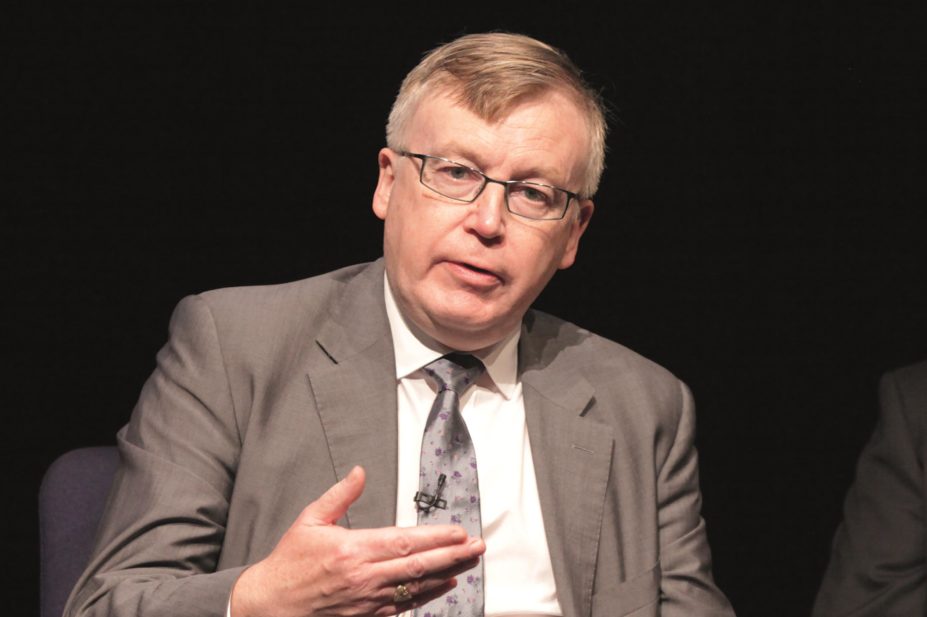
RPS
Pharmacy must “up its game in terms of quality”, Keith Ridge, the chief pharmaceutical officer (CPO) for England, told delegates at the Royal Pharmaceutical Society’s (RPS) 2017 annual conference.
Ridge was speaking during a joint address by the CPOs of all four UK nations.
In his speech, Ridge acknowledged there was “much good practice” across the sector, and thanked all pharmacy professionals for the good care they deliver.
But he highlighted “serious problems in respect to the quality of medicines use”, with unnecessary admissions to hospitals, polypharmacy, issues around adherence, medication errors and unnecessary antimicrobial use being the main areas of concern.
“Poor quality services and outcomes do our professions no favours whatsoever, and although we continue to operate under financial constraint, be under no illusion: the quality bar is being raised across the NHS,” Ridge said.
“Sometimes, it can look like pharmacy is not open to change,” he added.
“There are experts in quality systems in the professions. They need to be used more. No one part or person is the sole determinant of quality.
“If we are to get the best outcomes from medicines for patients, then the whole of pharmacy needs to see itself within a broader system of quality and be willing to exploit that systematic approach to the full.
“The quality expected simply can’t be delivered if we remain tied up in old ways of working that simply restrict many pharmacy professionals from doing their best for patients.”
The issue of medication errors would, he said, be a focus for the government over the coming months, referring to a blog released on 4 September by Jeremy Hunt.
CPO for Wales, Andrew Evans, also spoke of matters related to quality and medicines-related harm.
He said that during the previous 18 months, he had worked with the NHS in Wales to develop tangible outcomes that the government would like to see from medicines use: less harm, better outcomes, and a more efficient system.
Such outcomes would, Evans added, be facilitated by a more efficient and modern workforce, better use of technology, better access to information and benchmarking, and greater collaboration.
Sharing the nine commitments of the new strategy for Scotland, ‘Achieving excellence in pharmaceutical care’, Scotland’s CPO, Rose Marie Parr, told delegates that Scotland wanted to “stick to a vison for pharmacy as an enhanced part of healthcare provision”. This vision, which Parr said had been around since the publication of ‘The Right Medicine’, in 2002, essentially re-iterated the “golden thread” of the conference — decreasing harm and increasing benefit from medicines.
One overarching message that delegates could take away from her words, said Parr, was: “Don’t see barriers around settings for pharmacists or pharmacies. Look at integrated pharmaceutical care”.
Mark Timoney, CPO for Northern Ireland, said that with many health systems stretched to the limit, “transformation is not an option, it is an imperative”, yet acknowledged that such change is not easy in the “complex, multi-layered, under-resourced” systems that pharmacists operate in.
Through Northern Ireland’s recent establishment of The Medicines Optimisation Innovation Centre, Timoney said, “we can determine where the gaps in medicines optimisation lie, we can look at innovative solutions and ways to improve quality, and we can transfer knowledge.
“We’re identifying best practice and seeking to scale it up.”
You may also be interested in

Revisiting 2023: a look back at the year in pharmacy

Almost 40% of older adults with polypharmacy given inappropriate prescription when starting treatment for type 2 diabetes, study finds
